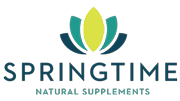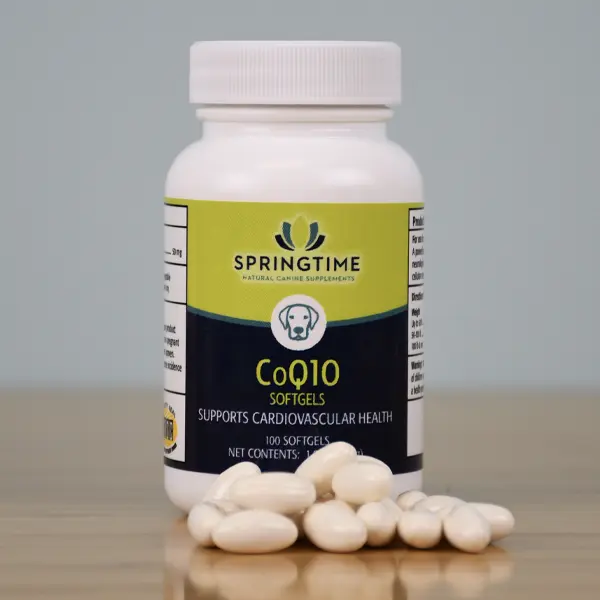CoQ10: What It Is, How It Works, and What It Does
Introduction
Coenzyme Q10 (CoQ10) is a naturally occurring compound found in every cell of the human body. It plays a crucial role in energy production and functions as a powerful antioxidant. CoQ10 is essential for maintaining overall health, particularly in supporting cellular energy, protecting cells from oxidative damage, and improving heart and muscle function. This compound has garnered significant attention for its potential benefits in treating various health conditions, especially in cardiovascular and neurological health.
What is CoQ10?
CoQ10, also known as ubiquinone, is a fat-soluble compound that helps produce energy within the cells. It is found in high concentrations in organs that require a lot of energy, such as the heart, kidneys, liver, and muscles. The body produces CoQ10 naturally, but its levels tend to decline with age, illness, or certain medications. CoQ10 is also obtained through diet, particularly from foods like fatty fish, organ meats (such as liver), and whole grains.
The compound exists in two forms: ubiquinone and ubiquinol. Ubiquinone is the oxidized form that the body converts into ubiquinol, the active antioxidant form. Both forms are important for cellular function, but ubiquinol is more effective in neutralizing free radicals and supporting cellular health.
How CoQ10 Works
CoQ10 works in the mitochondria, the energy-producing structures in cells. It plays a key role in the production of adenosine triphosphate (ATP), the primary energy carrier in the body. ATP is required for all cellular processes, from muscle contraction to digestion. Without sufficient CoQ10, the body's ability to produce energy is compromised, which can lead to fatigue and other health issues.
In addition to its role in energy production, CoQ10 functions as an antioxidant. Antioxidants help protect cells from oxidative stress, which occurs when there is an imbalance between free radicals and antioxidants. Free radicals are harmful molecules that can damage cells and contribute to aging and the development of chronic diseases. By neutralizing these free radicals, CoQ10 helps protect cells and tissues from damage.
Health Benefits of CoQ10
-
Heart Health One of the most well-known benefits of CoQ10 is its ability to support heart health. The heart is one of the most energy-demanding organs in the body, and it relies heavily on adequate CoQ10 levels to function efficiently. Low levels of CoQ10 have been associated with various cardiovascular conditions, including heart failure, high blood pressure, and angina.
Studies have shown that CoQ10 supplementation can improve heart function in people with heart failure by enhancing energy production in the heart's cells. It may also help reduce symptoms such as fatigue and shortness of breath. Additionally, CoQ10 has been found to lower blood pressure, which is important for maintaining cardiovascular health.
For individuals taking statin medications to lower cholesterol, CoQ10 can be particularly beneficial. Statins, while effective at reducing cholesterol levels, also reduce CoQ10 levels in the body. Supplementing with CoQ10 can help restore these levels and reduce the muscle pain and weakness often associated with statin use.
-
Energy Production and Reduced Fatigue Since CoQ10 is directly involved in energy production, it can help combat fatigue, especially in individuals with chronic fatigue syndrome or those experiencing fatigue due to aging or illness. Several studies have demonstrated that CoQ10 supplementation can improve energy levels and reduce feelings of tiredness. This is especially important for older adults, who may experience a natural decline in CoQ10 levels.
-
Neurological Health CoQ10's antioxidant properties also extend to brain health. The brain is particularly vulnerable to oxidative stress, which can contribute to neurodegenerative diseases like Parkinson's and Alzheimer's disease. Research suggests that CoQ10 supplementation may slow the progression of Parkinson's disease by protecting nerve cells from damage. While more studies are needed, early evidence indicates that CoQ10 may help reduce symptoms and improve quality of life for individuals with neurodegenerative disorders.
-
Skin Health CoQ10 is increasingly being used in skincare products due to its ability to protect the skin from damage caused by environmental stressors like UV rays. As an antioxidant, CoQ10 helps reduce the appearance of wrinkles and fine lines by supporting the skin's natural repair processes and stimulating collagen production. It also helps prevent oxidative damage that contributes to skin aging.
-
Immune System Support CoQ10 plays a role in supporting the immune system. Its antioxidant properties help protect immune cells from oxidative damage, ensuring that they can function properly. Some studies suggest that CoQ10 may enhance immune function, particularly in older adults whose immune systems may not be as robust.
-
Exercise Performance CoQ10 supplementation has been shown to improve exercise performance by increasing energy production in muscle cells and reducing oxidative stress during intense physical activity. This can lead to improved endurance, reduced fatigue, and faster recovery after exercise. Athletes and active individuals may benefit from CoQ10's ability to boost energy and reduce muscle damage caused by strenuous exercise.
How to Supplement with CoQ10
CoQ10 is available in both ubiquinone and ubiquinol forms, and both are effective as supplements. However, ubiquinol is more readily absorbed by the body, making it the preferred form for many people. CoQ10 supplements come in various doses, typically ranging from 30 mg to 300 mg per day, depending on individual needs.
For people taking CoQ10 for heart health or neurological conditions, higher doses may be necessary. It's always advisable to consult a healthcare provider before starting any new supplement, especially if you are on medication, as CoQ10 may interact with certain drugs.
Side Effects and Safety
CoQ10 is generally considered safe with few side effects. Some people may experience mild digestive issues such as nausea, diarrhea, or stomach upset. These side effects are usually temporary and can be minimized by taking CoQ10 with food. It is also important to note that CoQ10 may interact with blood-thinning medications like warfarin, so it's crucial to consult a doctor before starting supplementation if you are on these types of medications.
Conclusion
CoQ10 is an essential compound for maintaining cellular energy and protecting against oxidative damage. Its role in supporting heart health, neurological function, and overall energy levels makes it a valuable supplement for a wide range of individuals, especially those dealing with heart disease, fatigue, or neurodegenerative conditions. As we age, our body's natural CoQ10 levels decline, making supplementation an important consideration for maintaining optimal health.
Whether you are looking to improve heart function, boost energy levels, support brain health, or enhance exercise performance, CoQ10 is a safe and effective option. With its antioxidant properties and critical role in energy production, CoQ10 can help you maintain vitality and protect your cells from damage as you age.
CoQ10 Benefits for Dogs
CoQ10 offers notable health benefits for dogs, particularly in promoting cardiovascular wellness and energy levels. Older dogs or those with congestive heart failure, cardiomyopathy, or chronic fatigue may benefit significantly from CoQ10 supplementation. It supports mitochondrial function, which enhances stamina, cellular repair, and heart efficiency in aging canines. CoQ10 also aids in immune health and has been noted to assist in maintaining healthy gums and oral tissues.
As with any supplement, dog owners should consult a veterinarian before adding CoQ10 to their pet's regimen to ensure appropriate dosage and safety, especially in dogs with pre-existing medical conditions or those taking medications.
References
- CoQ10 and cardiovascular health: Greenberg, S., & Frishman, W. H. (1990). "Co-enzyme Q10: A new drug for cardiovascular disease." Journal of Clinical Pharmacology, 30(7), 596-608. DOI: 10.1002/j.1552-4604.1990.tb01892.x
- Statin-associated muscle symptoms and CoQ10: Marcoff, L., & Thompson, P. D. (2007). "The role of coenzyme Q10 in statin-associated myopathy: A systematic review." Journal of the American College of Cardiology, 49(23), 2231-2237. DOI: 10.1016/j.jacc.2007.02.049
- CoQ10's role in reducing fatigue: Hodgson, J. M., et al. (2002). "Coenzyme Q10 improves blood pressure and glycaemic control in patients with type 2 diabetes." European Journal of Clinical Nutrition, 56(11), 1137-1142. DOI: 10.1038/sj.ejcn.1601464
- CoQ10 and neurodegenerative diseases: Beal, M. F. (2004). "Coenzyme Q10 as a treatment for neurodegenerative diseases." Mitochondrion, 4(5-6), 705-715. DOI: 10.1016/j.mito.2004.07.038
- CoQ10 and skin aging: Hoppe, U., et al. (1999). "Coenzyme Q10, a cutaneous antioxidant and energizer." Biofactors, 9(2-4), 371-378. DOI: 10.1002/biof.5520090218
- CoQ10 and exercise performance: Cooke, M., et al. (2008). "Coenzyme Q10 supplementation and exercise performance: A systematic review." Sports Medicine, 38(7), 617-633. DOI: 10.2165/00007256-200838070-00004
-
CoQ10 for People
Concentrated in the heart, CoQ10 (coenzyme Q10) is produced by the body to support heart function. Springtime CoQ10 is a natural supplement that supports normal CoQ10 levels as you age.*$41.00–$82.00 -
CoQ10 for Dogs
CoQ10 (coenzyme Q10) promotes cardiovascular, neurological, and immune system health, while supporting cellular energy production.$23.50–$47.00


 Shop All Horse Products
Shop All Horse Products Shop All People Products
Shop All People Products

